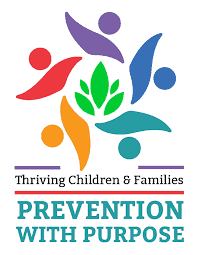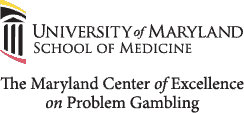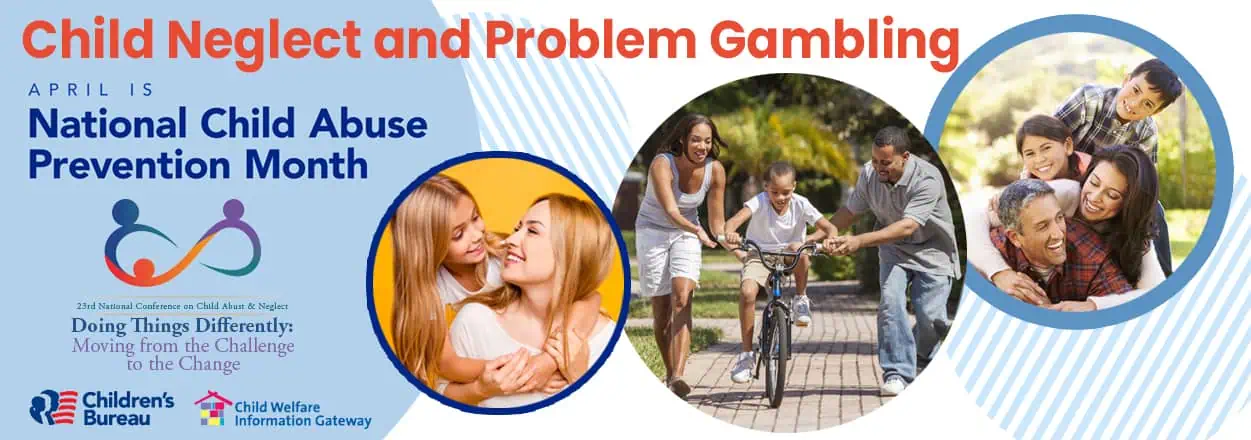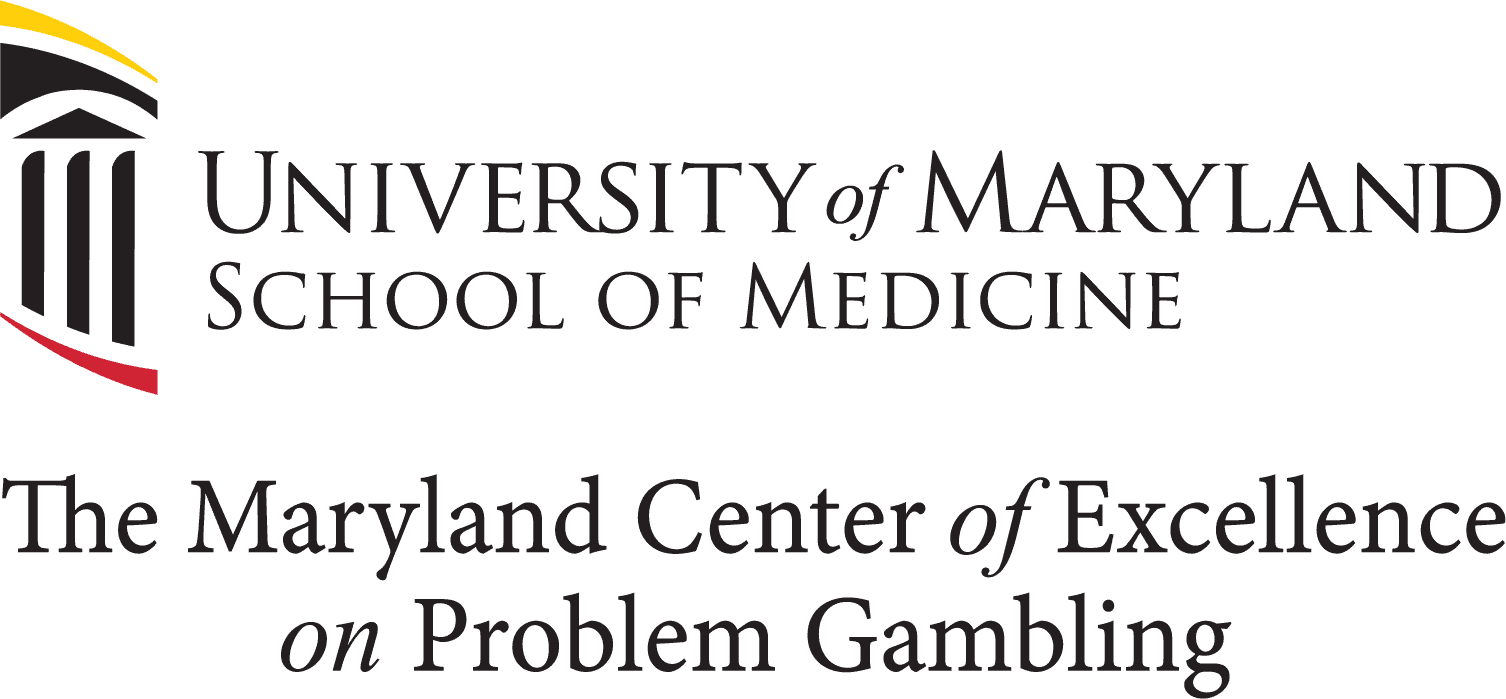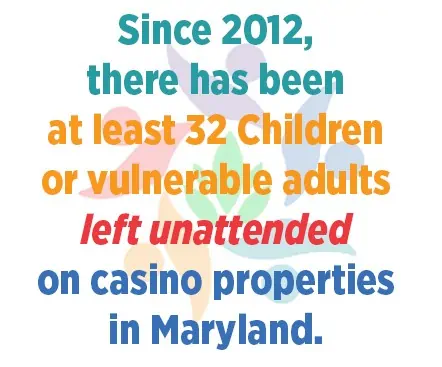
Families, in any formation, are the core of our communities. It is through awareness, collaboration and support that we keep families and the communities they live in strong, healthy and vibrant. Problematic and addictive behavior in adults can threaten the very foundation of a healthy and safe environment – and often, children are the easiest target for release of anger and frustration.
This April, the Center joins the U.S. Department of Health & Human Services and the Children’s Bureau to support National Child Abuse Prevention Month by bringing awareness to the connection between child maltreatment and problematic gambling behaviors and promoting positive child and family well-being.
National Child Abuse Prevention Month
Thriving Children and Families – Prevention with a Purpose
National Child Abuse Prevention Month recognizes the importance of families and communities working together to strengthen families to prevent child abuse and neglect. Through this collaboration, prevention services and supports help protect child and produce thriving families.
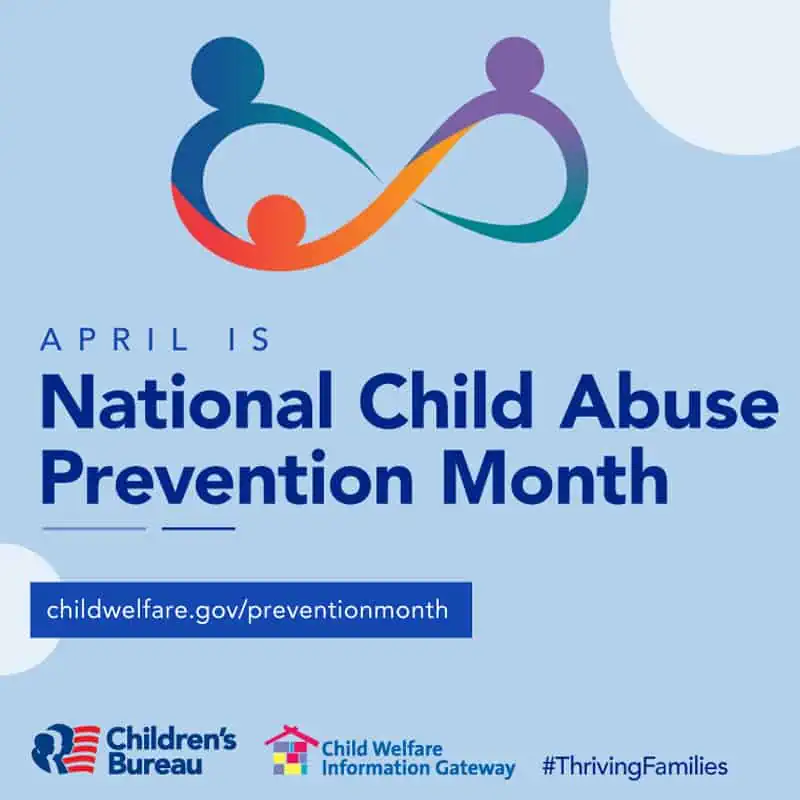
The Research Connection
Research utilizing the ACEs model (Adverse Childhood Experiences) shows there is a direct correlation between childhood maltreatment and problem gambling/disordered gambling.
A 2016 research study ₁ reviewed research studies on child maltreatment and risk of gambling problems in adulthood and adult problem gamblers’ risk of abusing or neglecting their own children. Additional research studies describe depression, social isolation, conduct disorder, and physical and emotional deprivation among children of problem gamblers.₂ Research further recommends parents should be asked about gambling behavior in their assessments of parental challenges and strengths which may help identify additional ways to intervene in at-risk families, stop ongoing abuse or neglect, and reduce the long-term sequelae of maltreatment.
What we know: those who were maltreated as children are more likely to be problem gamblers and problem gamblers are more likely to maltreat their children. Problem gambling and gambling disorder run in families. Unless problematic gambling behaviors are interrupted/stopped within the family unit, a never-ending cycle of addiction will continue.
₁ (Lane et al, 2016)
₂ (Abbott, Cramer, & Sherret, 1995; Lesieur & Rothschild, 1989; Vitaro, Wanner, Brendgen, & Tremblay, 2008).
Breaking the Cycle
If you are an adult who gambles frequently, having knowledge and taking steps to protect your children, your family unit, and yourself from problematic behaviors is essential. Here are a few suggested tips and steps to build a healthier and safer approach to life and break the cycle of gambling addiction:
- View gambling only as entertainment. It should be part of a variety of leisure activities.
- Gambling addictions often co-occur with other addictions such as alcohol, substance misuse, and/or gaming addiction. Don’t replace one problematic behavior with another.
- Never view gambling as a financial situation.
- Have a conversation about your gambling with your family, a trained counselor and/or a trusted support group.
- Develop and maintain a balance in all your do.
- If you begin to feel angry, walk away and call for help – dial 988 (Maryland Crisis Hotline).
Living to Thrive, Living to Hope
A healthy and happy life can be achieved, and recovery is possible from problematic gambling behaviors through a variety of resources.
- “No Cost” Screening – Maryland residents and their families can receive “no cost” screening and assessment no matter their ability to pay for problem gambling related issues.
- Have the Conversation with “someone who has been there” – Problem Gambling Peer Recovery Support for individuals and family members can be a support system and connect you with the resources you need. In addition, peer recovery support specialists for substance use disorder can be found by contacting your local health department.
- Support groups – Gamblers Anonymous and Smart Recovery provide a group support system that sustains recovery. GamAnon provides support for family members.
- Maryland Problem Gambling Helpline 1-800-GAMBLER (1-800-426-2537) provides free confidential 24/7 referrals to the resources you need.
- A Dedicated Website for help and hope – HelpMyProblemGambling.com – provides additional information, including a self-assessment of your gambling habits.
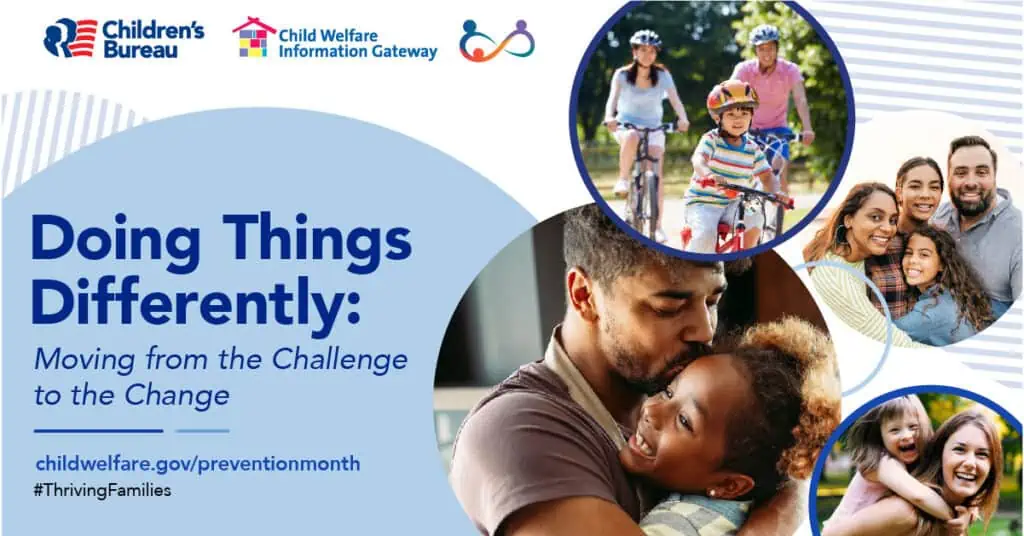
Signs Your Gambling Is Becoming a Problem
- Preoccupied with gambling (i.e., reliving past gambling experiences, planning the next venture, or thinking of ways to get money with which to gamble)
- Secretive about gambling habits, and defensive when confronted.
- Increasing bet amounts when gambling in order to achieve the desired excitement (“high”)
- Trying unsuccessfully to control, cut back, or stop gambling.
- Restless or irritable when not gambling.
- Gambling to escape problems.
- Trying to win back losses by more gambling.
- Lying to family and others about the extent of gambling
- Jeopardizing or losing relationships, jobs, education or career opportunities because of gambling.
- Relying on others for bail out, to relieve desperate financial situation caused by gambling.
